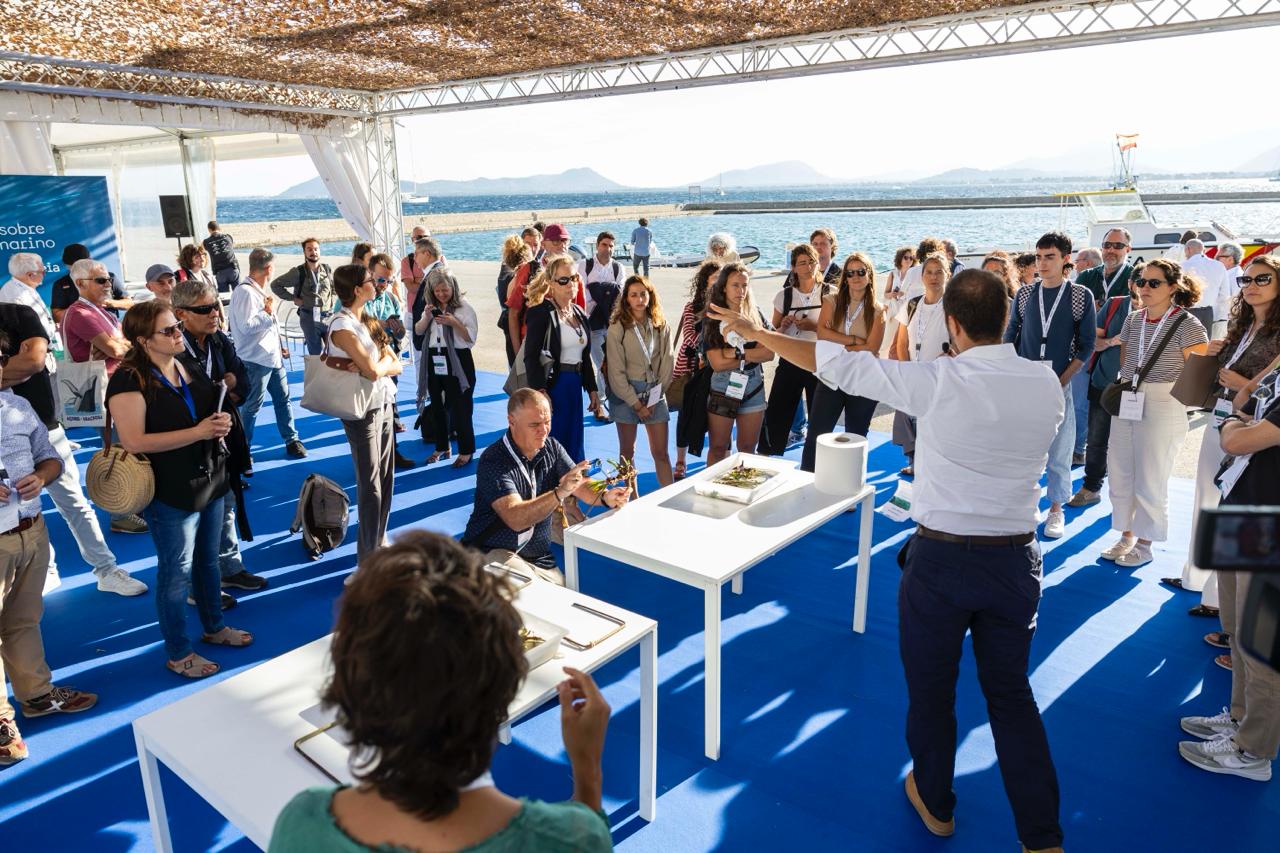The event provided a platform for discussing the restoration and conservation of marine meadows, with a particular focus on Posidonia oceanica. The seminar coincided with the recent launch of Redeia and Ecomar’s ‘Bosque Marino’ platform, which aims to restore marine ecosystems by 2030, in line with the EU’s new Nature Restoration Law.
The event was an excellent opportunity for ECOACSA to strengthen relationships with the ARTEMIS partners, including the Institut Balear de la Natura (IBANAT), the Conselleria d’Agricultura, Pesca i Medi Natural, and OBSAM. ECOACSA presented the project aimed at assessing opportunities for restoration and valuing the ecosystem benefits of degraded marine meadows. Through collaboration with Redeia and other key stakeholders, the goal is to develop shared strategies and innovative approaches for the sustainable conservation and management of marine ecosystems in the Mediterranean.
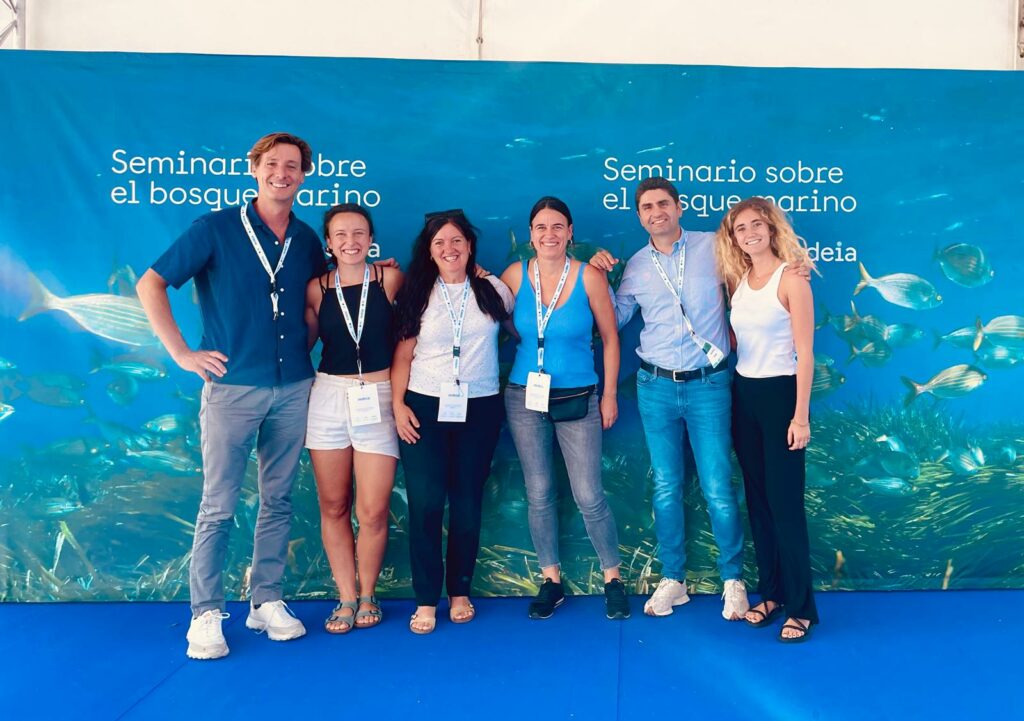
ARTEMIS partners: ECOACSA, Institut Balear de la Natura (IBANAT), Conselleria d’Agricultura, Pesca i Medi Natural, OBSAM
During the event, several key topics were discussed, starting with the opening remarks by Antonio Calvo, Director of Sustainability at Redeia. He set the stage by emphasizing the significance of the restoration project that began in 2014, aiming to restore two hectares of Posidonia oceanica in front of the military base – one of the largest restoration project in the Mediterranean. Representatives from IMEDEA and the Balearic Ministry of Environment also highlighted the importance of this initiative, which saw its first results in 2018, marking a milestone in marine ecosystem restoration efforts.
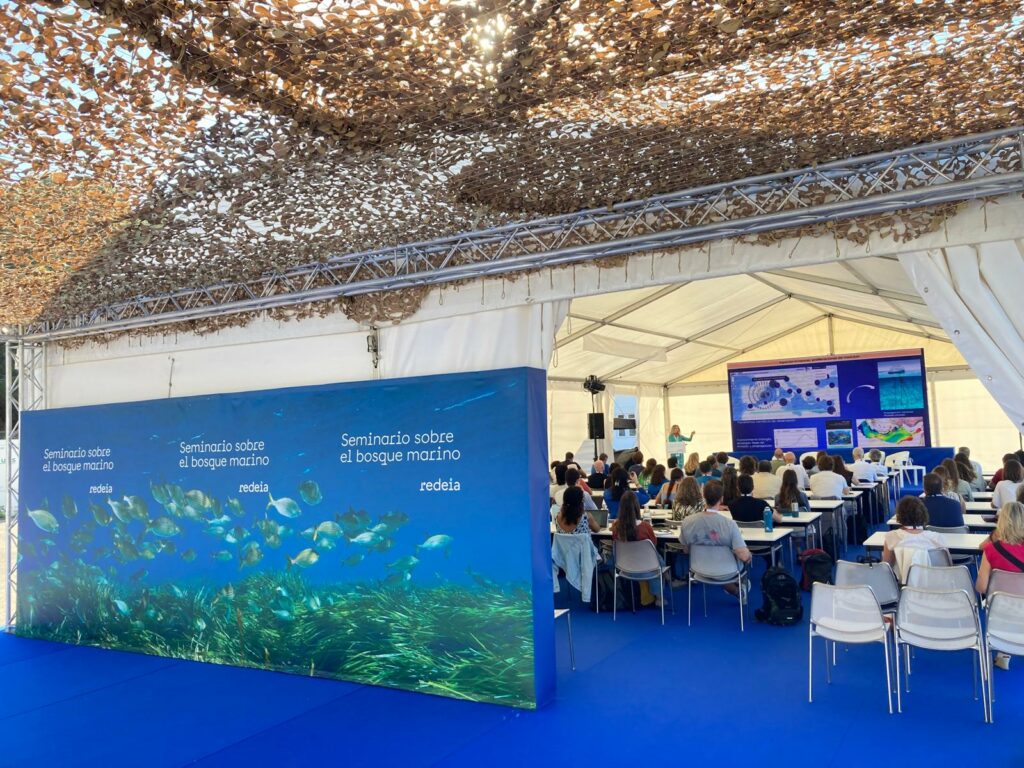
Eva Pagán, Director of Sustainability and Studies at Redeia, and Theresa Zabell, President of Fundación Ecomar, took the opportunity to discuss their ongoing commitment to marine ecosystem restoration. They emphasized the need to expand the efforts of the Bosque Marino project beyond the Balearic Islands to regions like Catalonia, Murcia, and Valencia. This expansion is crucial for scaling up the impact and ensuring the protection of these vital ecosystems across the Mediterranean. Joan Simonet, Counselor of Agriculture, Fisheries, and Natural Environment of the Balearic Islands, provided valuable insights into the management of protected areas, stressing the need for efficiency and the integration of scientific criteria into policy-making. He was followed by Raúl Mérida, Secretary of Environment and Territory for the Generalitat Valenciana, who underlined the importance of public-private collaboration in safeguarding coastal ecosystems, particularly in the Valencian Natural Parks. This theme is particularly relevant for ARTEMIS, which aims to establish financial protocols to promote public-private partnerships in restoration efforts. By fostering such collaborations, ARTEMIS seeks to create sustainable frameworks that can support large-scale restoration projects, ensuring long-term conservation and recovery of marine ecosystems across the Mediterranean.
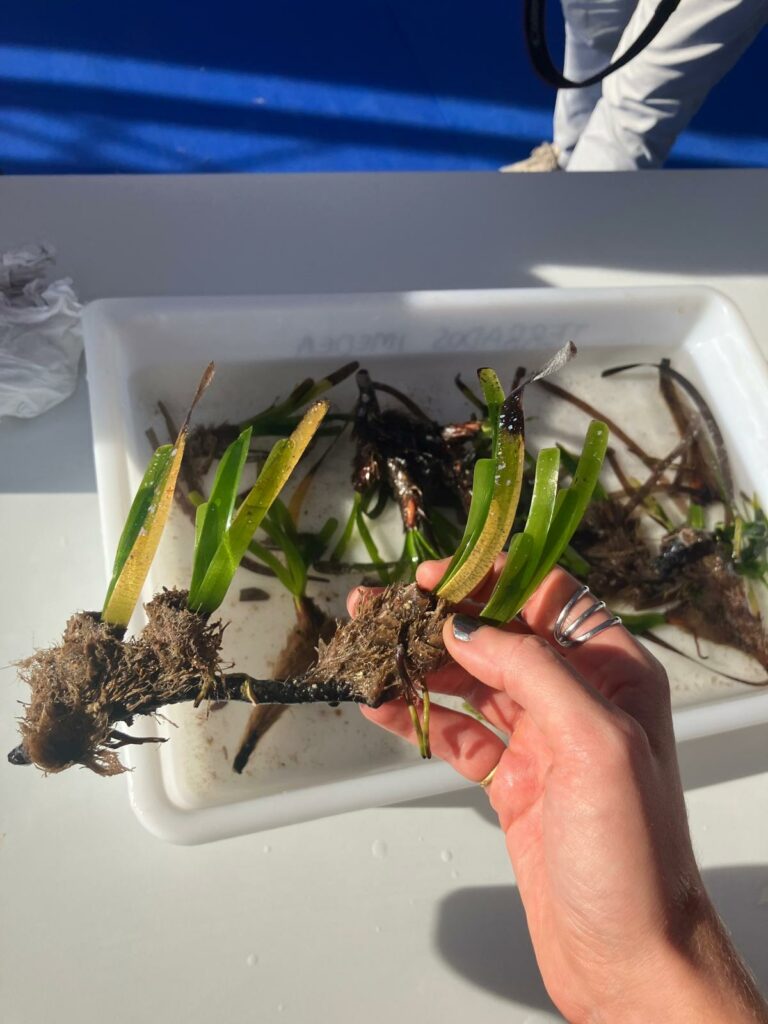
On the technical side, Jorge Terrados from IMEDEA delved into the specifics of the Posidonia oceanica restoration process. He shared the impressive results achieved in the Bay of Pollença, where the planted rhizomes showed a 78% survival rate. Terrados highlighted that while these projects show promise, they require a long-term commitment, as the full restoration of biodiversity can take decades. His insights underscored the need for ongoing dedication to the preservation and recovery of these precious marine habitats.
Ecoacsa presented the ARTEMIS initiative, which aims to accelerate the restoration of degraded seagrass meadows across 4 pilot sites in Italy, France, Spain, and Greece. Our project focuses on developing scientific measures to quantify the ecosystem benefits of these restoration activities, providing crucial data for conservation credits.
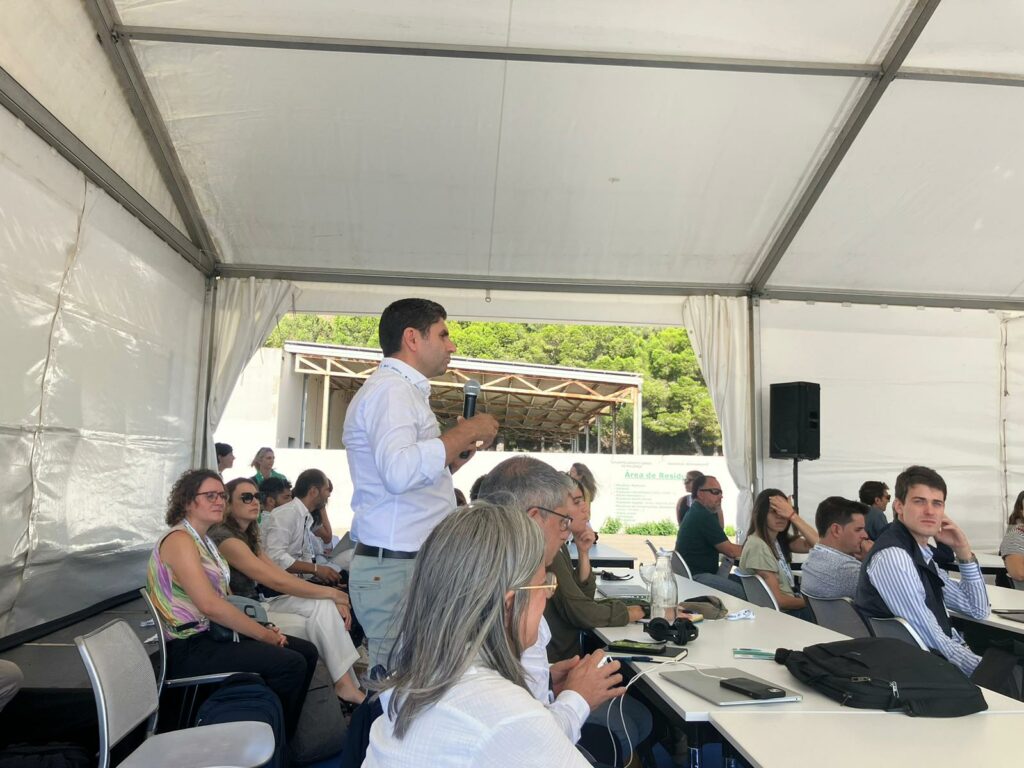
David Alvarez, Chief Executive Officer of Ecoacsa Reserva de Biodiversidad, presented ARTEMIS in Bosque Marino Redeia in Pollença, Maiorca – Spain
David Alvarez, Chief Executive Officer of Ecoacsa Reserva de Biodiversidad said: “The event reinforced the necessity of collaboration and long-term commitment to protect and restore the Mediterranean’s precious marine ecosystems. At ARTEMIS, we are looking for partnerships that can drive impactful restoration initiatives, and we expect to collaborate with both public and private stakeholders to establish sustainable models for marine conservation.”

